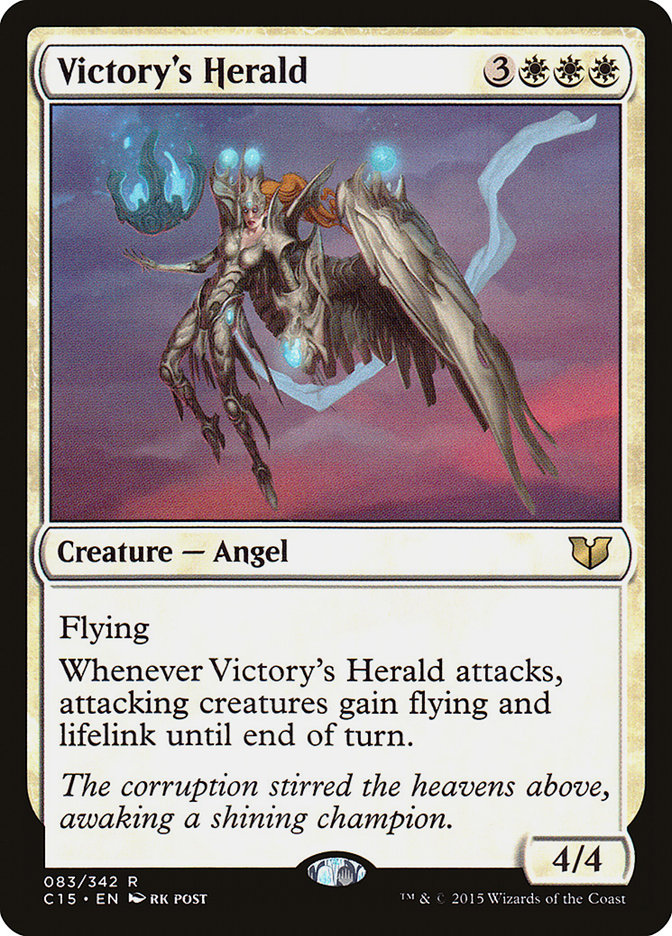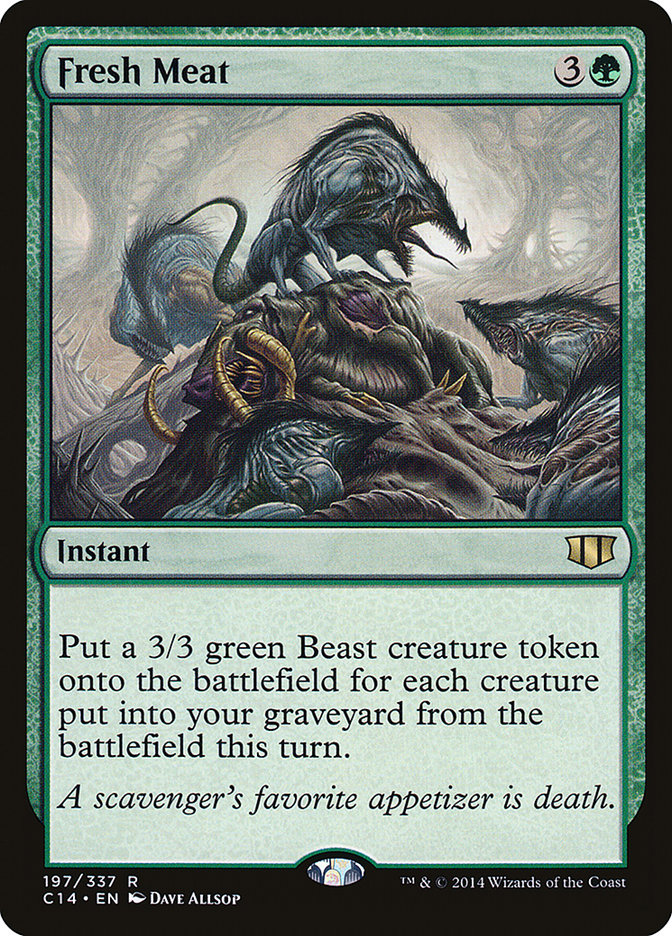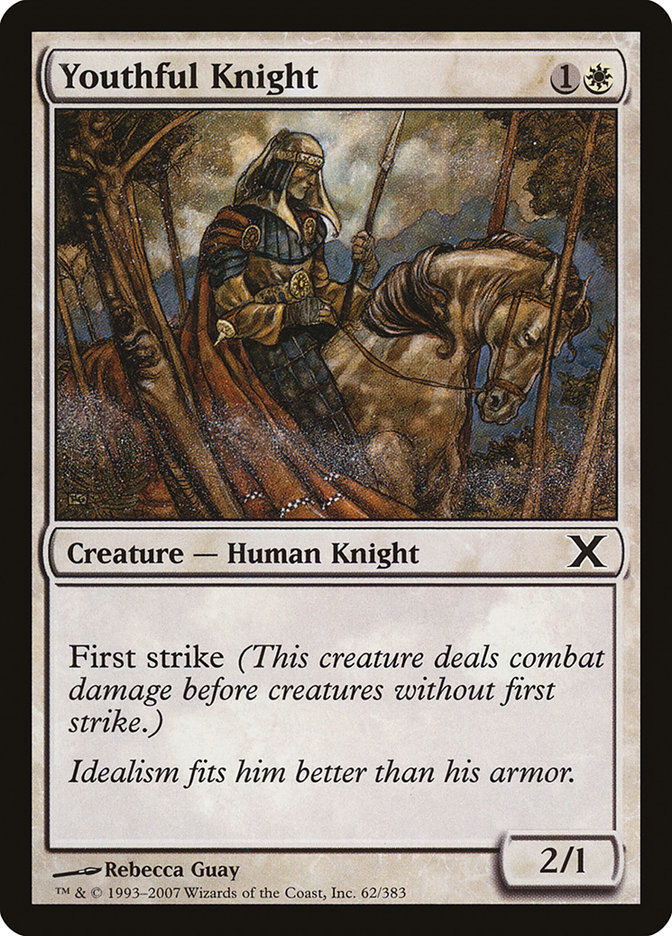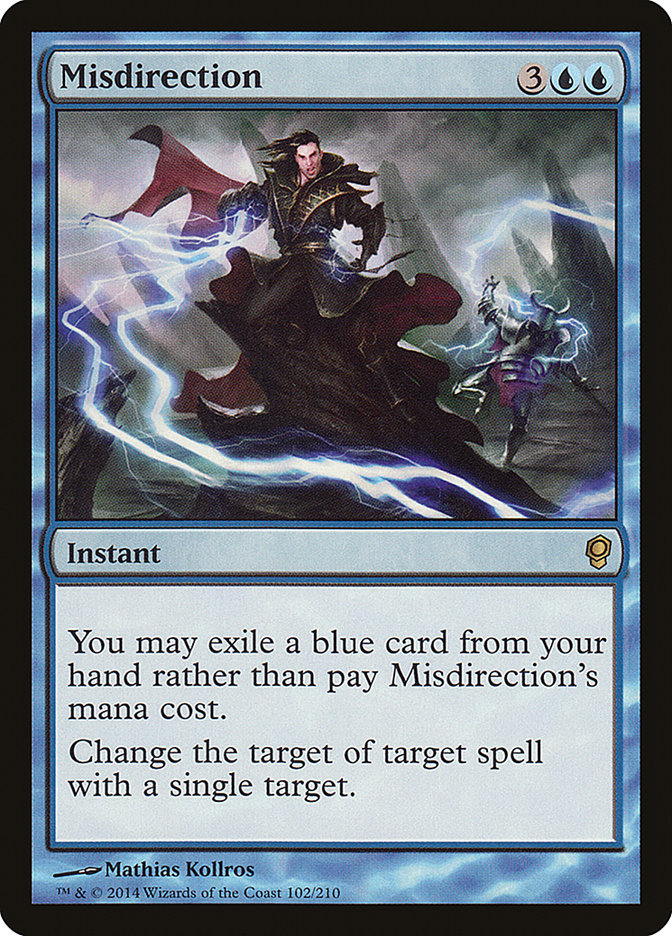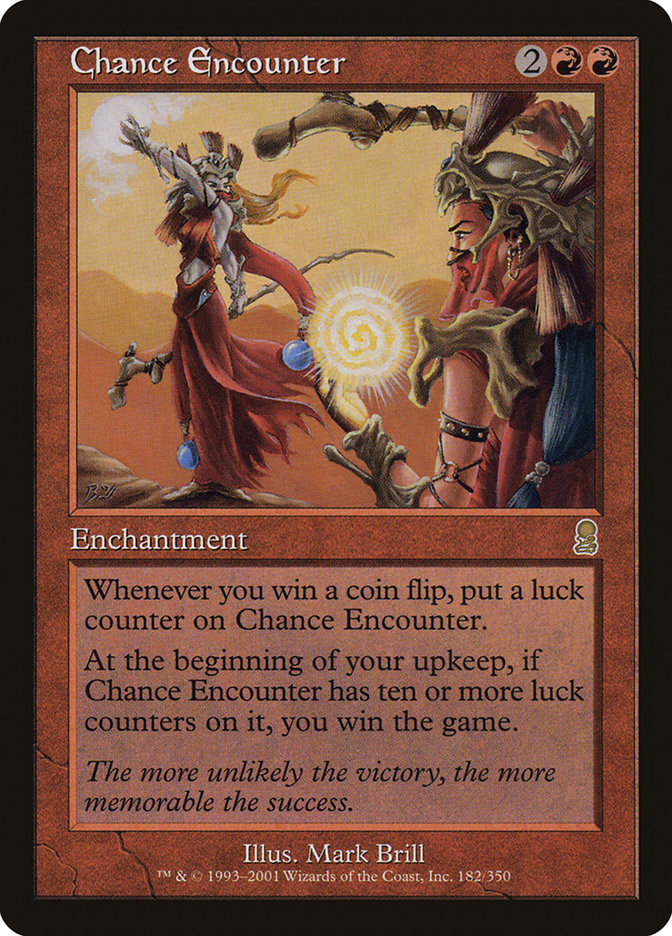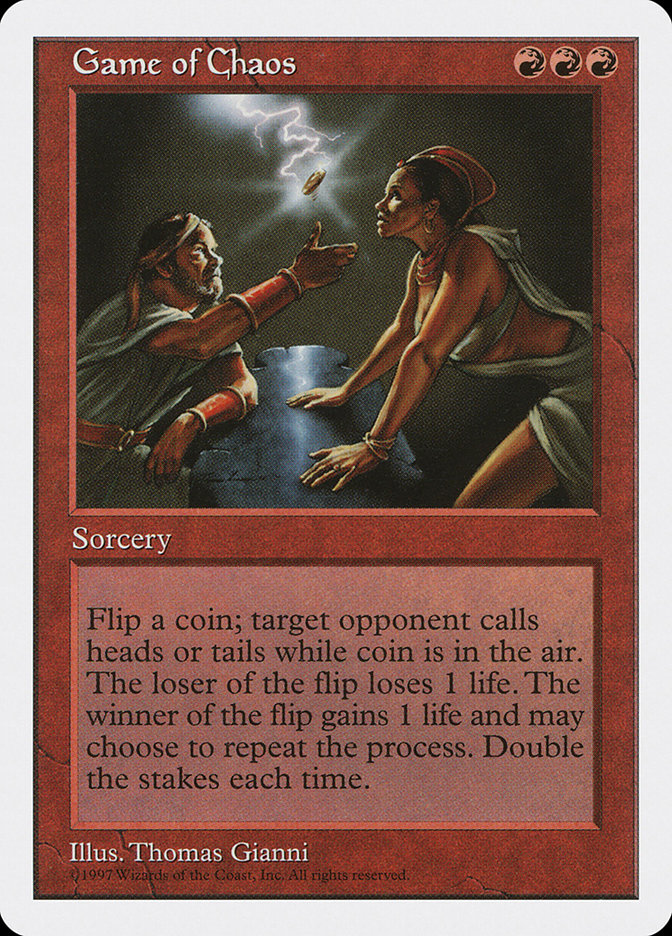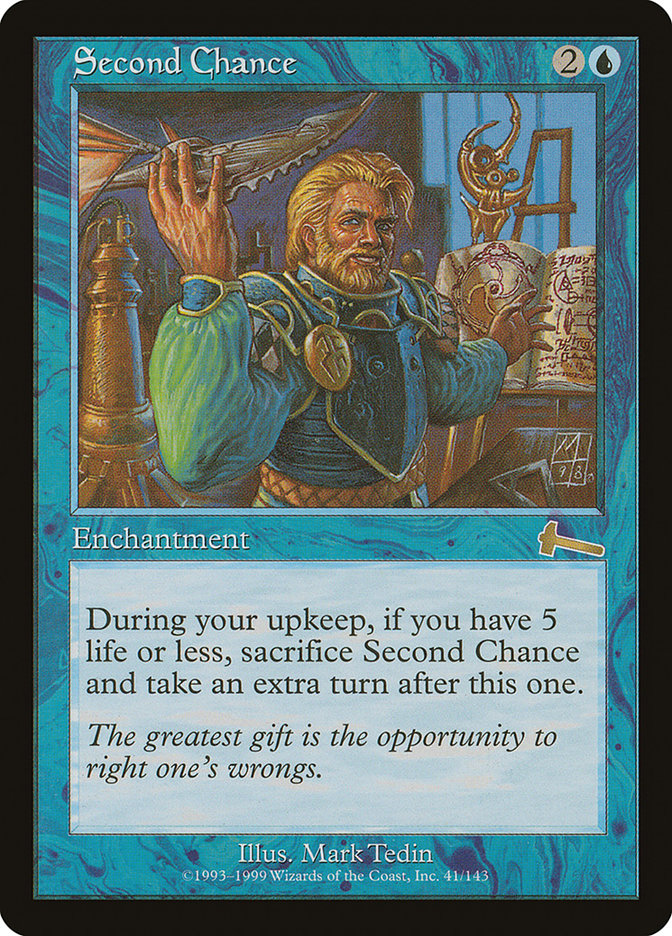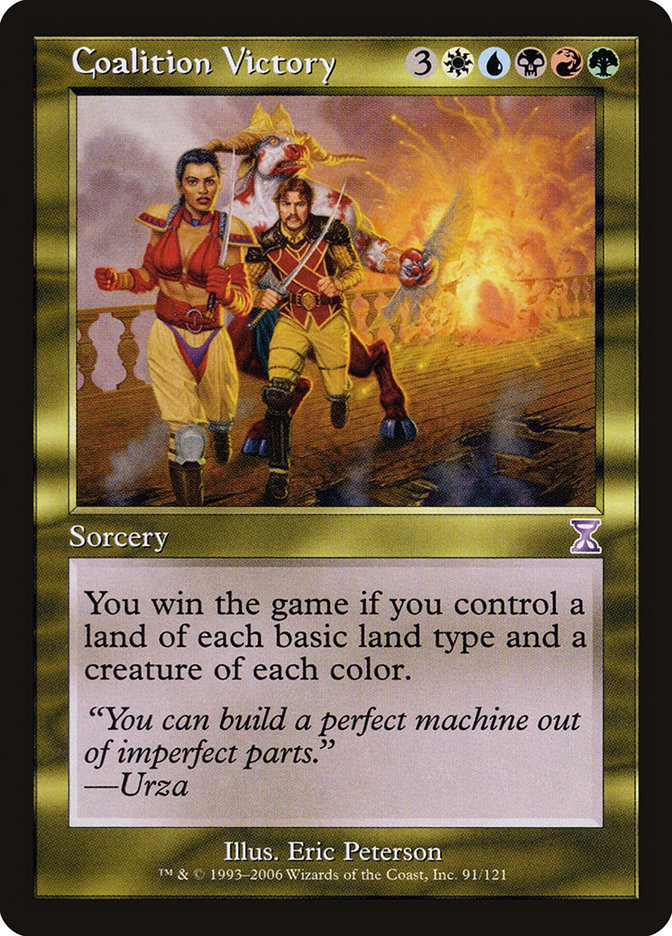 Limited Resources and got asked a very similar question, but the question’s tough to answer in a few short sentences with no time to think about it. Since then I have given it some thought, and decided it would be a good story to tell if it can maybe help some people passionate about Magic learn from my personal experiences. I’ve come up with the steps I believe I personally took to get to the next level. Let’s give it a little context to start.
Limited Resources and got asked a very similar question, but the question’s tough to answer in a few short sentences with no time to think about it. Since then I have given it some thought, and decided it would be a good story to tell if it can maybe help some people passionate about Magic learn from my personal experiences. I’ve come up with the steps I believe I personally took to get to the next level. Let’s give it a little context to start.
I started playing competitive Magic in the late 1990s and continued to be a local PTQ grinder for five or so years before taking breaks here and there from competitive Magic and eventually taking a few years off altogether. I played my first Pro Tour in 1999 and continued to win a PTQ every now and then for the next five years. I had always felt like a big fish in a small pond while playing in my local events, but when it came time to play in the Pro Tour, I was simply outmatched. I would show up, have a mediocre to poor performance, and eventually have the “it’s just not my day” mentality. Like a broken record I’d go back to my local tournament scene, eventually have another strong showing, get myself back onto the Pro Tour either through rating or a straight PTQ win, and have another mediocre Pro Tour performance. Rinse, wash, repeat.
After my most recent break from the game, which lasted approximately five years of playing very little competitive Magic, I decided to give it a try again. Magic has always been one of my biggest passions in life and I wanted to make another run at it. I started showing up to Limited PTQs and really started enjoying myself again. Some of my old friends were still there, plugging away, hoping to break through and have some success at the next level. I realized this time around that they were insane. I was insane. I had played Magic for so long, but I’ve always done things the same way.
It’s been said that “Insanity is doing the same thing over and over, and expecting a different result.” I had never done anything differently, and frankly my closest Magic friends hadn’t either. Now, don’t get me wrong, Magic is a game with variance, but there are things we can do to improve our results.
Step One: Meet new people and talk about Magic
My first memory of one of the first Limited PTQs I played on my return to Magic was talking to my friends about how I built my deck. I had built my deck in a manner most of my friends considered wrong. Granted, it was the first time I had seen a single card from Innistrad, my Prerelease if you will. Nonetheless, my friends told me I should play X, Y, and Z. A player I had never met before by the name of Dustin Taylor, who seemed to mingle with a couple of people I knew from the past, asked if I minded if he looked. He took a look and told me what he would have done differently. I told him why I did what I did; granted, I had a lot less experience with the format than he did, and we discussed it for a few minutes.
Dustin ended up winning the PTQ that day while I lost in Top 8. Dustin is a good friend of mine to this day and someone I talk with often about Magic. This was step one in my progression. I started not only talking about Magic and debating in a meaningful manner, but also talking to other good players that were outside of my closed group of friends, a new group of players I hadn’t gotten to discuss Magic with before.
You’ll be surprised how much you can learn from people if you just take some time and discuss Magic with them. Talk about why you like the deck you do, why you don’t like something else. Make sure the discussion is always positive and productive. I think this was easier to do with a seemingly nice guy I had never met before than with my friends, perhaps. I wasn’t going to tell him he was wrong; we barely knew each other. It made me use logic in discussing the conclusions I came to, instead of the typical dismissive behavior I may have used on someone I’ve seen do things wrong in the past.
Step Two: Read and Watch
Right around this same time, I felt a little overwhelmed playing in Constructed events. I felt far behind in terms of knowing how to play a deck or anything else about the format. I was new to the game again. Honestly, at this point I had likely never cast a planeswalker in a constructed match before.
I asked a few friends, new and old, how I should approach the current Standard format. They told me the decks they were thinking of playing and directed me to some articles right here on StarCityGames.com. Now, back in my days, we had very little Magic literature. Today, we have much reading material to sift through, many matches and videos we can watch.
If you’re truly passionate about improving, like I was at the time, I highly recommend reading articles, watching videos, and watching past matches of great players. I started actually studying the game I love. I’d watch draft videos by the dozens, comparing my own picks to picks of these highly touted professional players. I’d watch Constructed matches and videos to see how these pros would sideboard with the deck I had chosen, and even get an explanation as to why they were sideboarding the way they did.
We have the ability to compare notes with the best in the world. It’s something we should take advantage of. Reading and watching videos was the second key in my progression.
Step Three: Play Magic
No, really, play Magic.
When I decided I wanted to try and be good at Magic, like really good, I started cutting out my other hobbies. I love video games. I’ve always loved video games since I was a kid watching my father beat Super Mario 2 on Nintendo. I basically only play one video game now; it’s called Magic Online. Stephen Curry didn’t improve his shooting ability in the batting cages.
As I started to want it more, and started feeling like I was getting better, I just got hungrier. I wanted to win at Magic more than anything and kept feeling like I was getting closer. I noticed myself watching fewer sports, playing fewer video games, and spending less time at the movies. I started playing so much Magic Online that I would have several-hour-long Skype calls each day with a group of Magic friends that we often refer to now as “SiggySkypez.” These Skype calls would last eight to ten hours sometimes.
We would screenshare with each other: drafts, Constructed matches, and even brewing of Constructed decks, often having critical discussion about making plays or selecting cards. We’d review spoilers together and discuss what we liked in both Limited and Constructed. This group of people I’d Skype with was only a few local friends at first and eventually expanded out to all the new people I’ve met throughout my years back in the game. This is the culmination of the first three steps I had taken to improve. I would play a ton of Magic, watch a ton of Magic, and discuss it with my peers.
Step 4: Critical Analysis
My time during SiggySkypez gave me some real eye-opening insight in my own gameplay. It can be tough for anyone to admit they’re wrong or that they made a misplay, and I meet plenty of people who refuse to do so. This is a hard mold to break. A younger me was definitely too stubborn. Instead of admitting fault, I would find ways to prove I was right or find ways I could have possibly been correct in making a decision.
Instead I learned that I should figure out why I made the mistake I did and improve my thought process so that it doesn’t happen again. “I messed up” are three of the hardest words to admit to oneself. Opening a door and letting other people watch you make mistakes, explaining to you why they think it was a mistake, and what you could have done better is an excellent way to critically analyze your gameplay. You have to be willing to accept the criticism, however, or it’s just an unproductive endeavor. Open your mind, learn to accept that you may be wrong sometimes, and learn from those mistakes.
You won’t only learn from mistakes, either. Watching each other play on SiggySkypez opened us all up to new lines of play we hadn’t thought of. We would discuss our lines of play, and unsurprisingly one of the two or three of us would often find the right play. We learned to think about the game differently from one another. This was step four, and one of the most critical steps in my progression.
Step 5: Learning from and Understanding Variance
Variance is a huge part of Magic. Often, when I hear people use the term “variance” in Magic, it has a negative connotation.
“I punted Round 3 and Round 4 I just lost to variance.”
What I rarely hear is how people credit their wins to variance. Occasionally people will admit they got very lucky to win, but it is much rarer than the person blaming a loss on bad luck. There is both good and bad variance in Magic and we have to learn to embrace it. It’s hard to detach yourself from results. Results aren’t what we should worry about, however.
Maximizing our chances to win is what we should strive for. Often we are given choices in Magic that give us different percentage chances to win a given game. Some of us feel like we made a mistake when we took the 60% line instead of the 50% line because it turns out we would have won had we taken the 50% line. But the chances we give ourselves to win are just those, chances. It’s easy to be down on yourself for losing an important match that, if you had just taken a slightly different line of play, you would have won.
Some can’t separate their decision from the result of the decision. But it is important that we take that next step, understand what we did and why we came to the conclusion we did, and determine if we gave ourselves the best chance. If we did give ourselves the best chance to win the game, we should be happy with that and understand variance got the best us this time. This works both ways, too; sometimes we win that match making the wrong play, reinforcing a bad decision and training us to potentially make a worse play in the future. This ties into the previous step of critically analyzing your gameplay.
I’ve heard a cliche saying “I learn when I lose, so I don’t mind losing.” While this is true, and an overall good attitude to have, we can learn a lot from our losses, but we can also pay attention and improve on games we’ve won as well. Just because we’ve won doesn’t mean we’ve maximized our odds in doing so. Variance plays a part in both our losses and wins.
Another part of variance is simply understanding how likely you are to do well at an event. I often talk to players who play a lot at the local level, do reasonably well, and wonder why they haven’t had a breakthrough at an SCG Tour® stop or a Grand Prix. A common line is “I haven’t Top 8ed one of these in like two years!” I always follow up with the same question to this comment: “How many have you played?”
People often give a timeline for their desired goal result instead of an estimated number of tournaments they realistically expect to meet that goal. They will commonly answer my follow-up question with some single-digit number. This is just too small a sample to draw a conclusion from. We’ve been trained to see some of the best players do well over and over again. It feels like the same players are Top 8ing every event they play in, but in reality these are just great players who go to a lot of major tournaments. You can’t just go to two events in a year and be frustrated you didn’t Top 8 one of them. It’s just not realistic and often leads to people questioning if they are good enough.
One of the players I trust most when I have a question about Magic is Jonathan Morawski, who has been playing as long as I have and just recently has had some success Top 8ing the #SCGPC. Some of you may now know who he is, but prior to that, I doubt it. Did he all of a sudden become really good, or was he good for a while? Did he just get luckier? Well, it’s probably a combination of those variables.
Jon Finkel recently asked me, “Mike, would you say you got a lot better than you were in the past two years or did you just get much luckier?” I said I’ve gotten a bit better and probably a lot luckier. It’s hard to quantify. Sometimes great players just fall through the cracks for a while and don’t break through. Sometimes it’s just variance. The only way you can break through and reach the goals you set for yourself is to keep swinging the bat.
I’m not sure on the exact number, but before I came back to the game, I had played somewhere around nine or ten Grand Prix in about 15 years on and off of Magic, and only about half of those were individual events. I didn’t reach the elimination rounds in any of them. I realized that if I wanted to give myself a chance at becoming a professional player, I had to attend more events, plain and simple. This was the fifth and one of the last steps in my progression.
Step 6: Team Face to Face
I would be lying if I said joining Team Face to Face wasn’t an important part of how I got where I am today. This is really a bonus step, however. Joining this team was simply implementing previous steps at the highest level. My Pro Tour testing team was a circle of new great players, truly passionate about getting better at Magic. We watch each other play, read each other’s articles, and posts in our forums. Most of us now play Magic for a living.
That said, we play a lot of Magic and attend a lot of tournaments. We analyze the finest details about gameplay and deckbuilding and are always looking for ways to improve even the smallest details, trying to maximize any edge we can get. When thinking about it, I realized these were very similar to the same steps I took when I was serious about improving myself as a Magic player. At the highest level, the formula for improvement doesn’t change as much as the passion and commitment to do so.
Go Forth and Conquer
Two or three years ago, I was simply another decent PTQ grinder, and today I’m writing an article about Magic as reigning Player of the Year. As someone who hasn’t worked this hard for anything before and gotten the privilege to say I succeeded in my efforts, I hope you can learn something from my journey.


